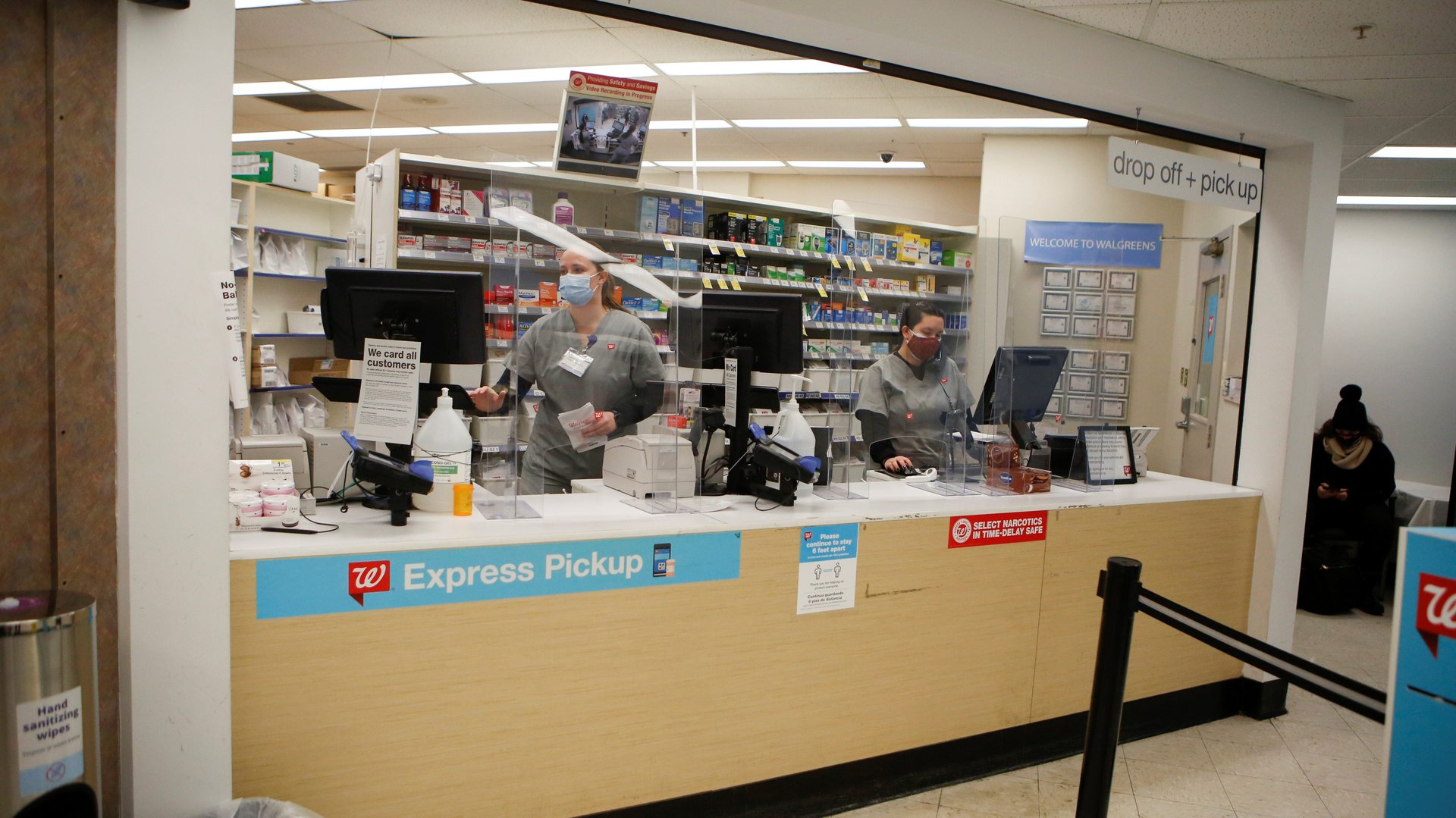CVS and Walgreens are limiting sales of at-home covid tests
US drugstore chains CVS and Walgreens are limiting the number of rapid at-home covid-19 test individual customers can buy at one time, in response to a surge in demand ahead of the holidays.


US drugstore chains CVS and Walgreens are limiting the number of rapid at-home covid-19 test individual customers can buy at one time, in response to a surge in demand ahead of the holidays.
With covid infections once again on the rise, likely due to the omicron variant, Americans have scrambled to purchase over-the-counter tests. Supply has not kept up with demand, and many stores are now posting signs informing customers they’re out of stock. Covid-19 testing sites are also dealing with long lines outside of their facilities.
“We ask that our customers please show patience and understanding as together, we continue to navigate the evolving pandemic environment,” Walgreens president John Standley said yesterday (Dec. 21).
Outside of the US, most Western countries supply rapid covid-19 tests at a low cost or free of charge .
CVS, Walgreens limiting purchases
“Due to the incredible demand for at-home rapid testing,” Walgreens said yesterday it will only sell a maximum of four tests per customer; CVS will sell six. Both chains still offer lab-based testing, which typically turns around results in a day or two, and rapid testing on-site.
The companies said their stores may experience temporary shortages of over-the-counter tests. Their websites bear this out, with most tests out of stock, and delivery dates after the holidays.
Rapid tests remain expensive, unreliable
In the months leading up to the holidays, many Americans were focused on getting their Christmas shopping done in time to get ahead of a historic supply chain crunch. While shipping presents has turned out to be less of a headache than expected, omicron threw another wrench into holiday planning and highlighted weaknesses in the US supply chain when it comes to covid-19 testing.
While rapid at-home covid-19 tests are considered to be an effective public health tool for containing virus spread, they remain much costlier in the US than in other countries, with prices ranging from $9 to $24. In Germany, stores sell them for under $1, while the UK provides them free of charge.
A number of manufacturers scaled back production of rapid covid-19 tests over the summer, including Abbott Laboratories’ BinaxNow, which accounts for 75% of US retail sales. What’s more, the Food and Drug Administration makes it tremendously complicated for manufacturers to get rapid tests authorized, putting them in a holding pattern that further delays access for people in the US.
Both the Trump and Biden administrations initially prioritized developing covid-19 vaccines over testing, and while Joe Biden is now trying to ramp up access, manufacturers and retailers are still likely to struggle to meet demand in the coming weeks.